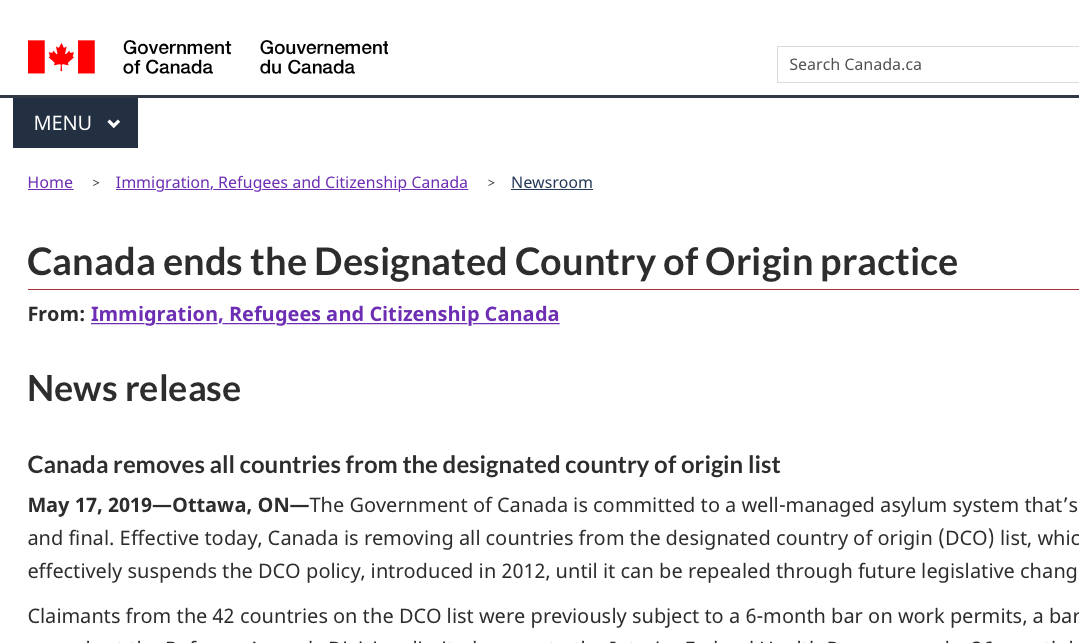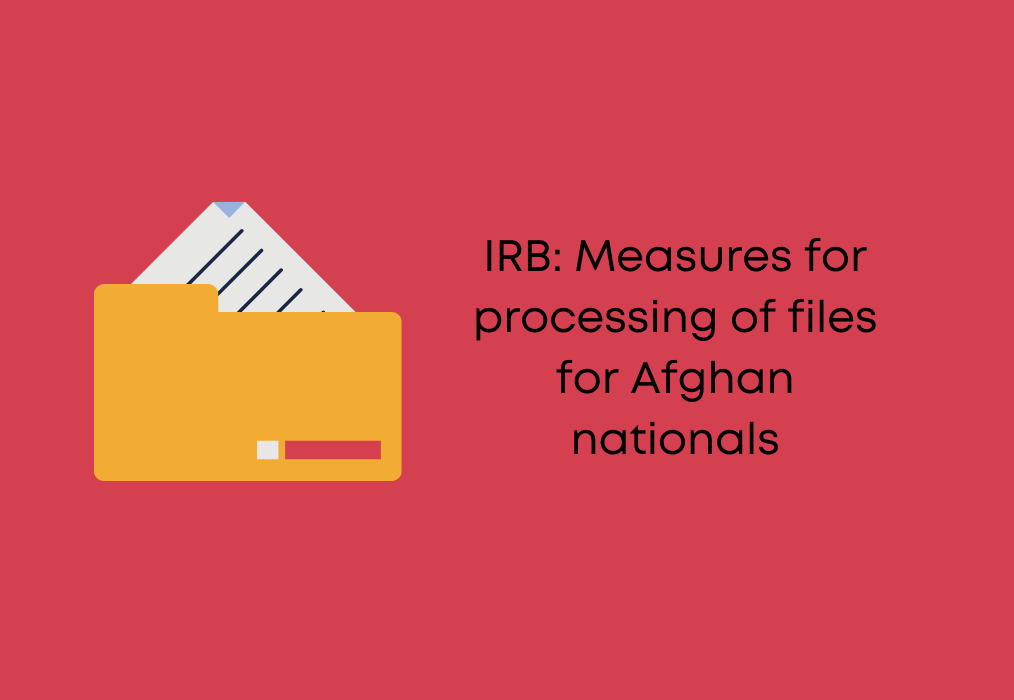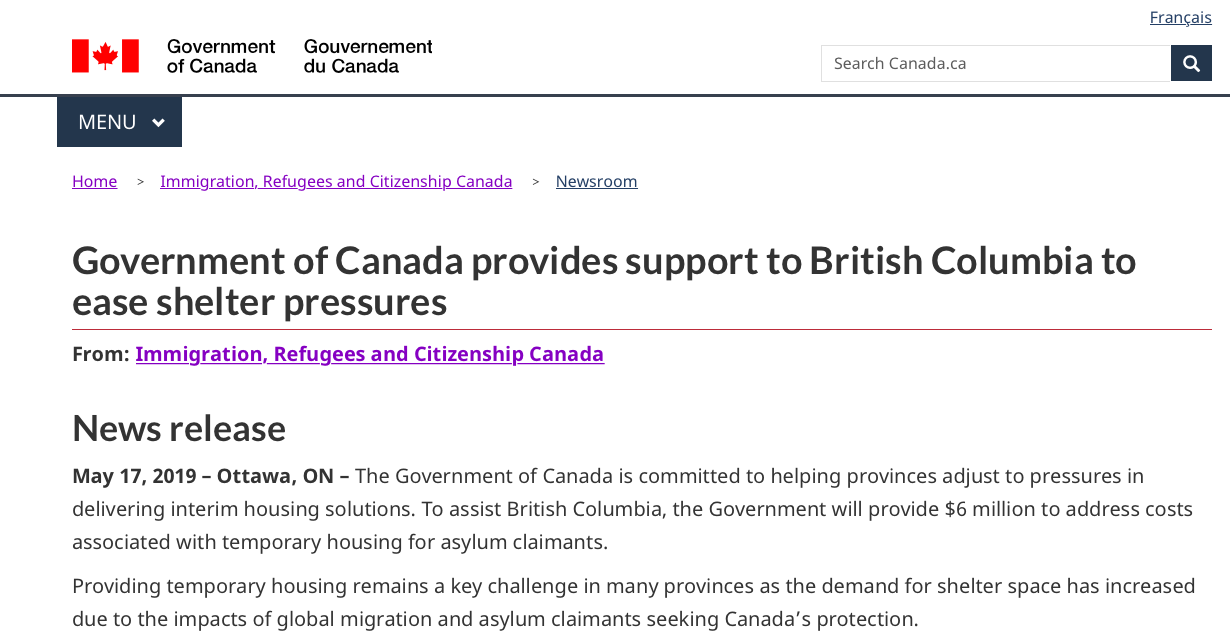Canada removes all countries from the designated country of origin list
Read complete News Release Here
May 17, 2019—Ottawa, ON—The Government of Canada is committed to a well-managed asylum system that’s fair, fast and final. Effective today, Canada is removing all countries from the designated country of origin (DCO) list, which effectively suspends the DCO policy, introduced in 2012, until it can be repealed through future legislative changes.
Claimants from the 42 countries on the DCO list were previously subject to a 6-month bar on work permits, a bar on appeals at the Refugee Appeals Division, limited access to the Interim Federal Health Program and a 36-month bar on the Pre-Removal Risk Assessment.
The DCO policy did not fulfil its objective of discouraging misuse of the asylum system and of processing refugee claims from these countries faster. Additionally, several Federal Court decisions struck down certain provisions of the DCO policy, ruling that they did not comply with the Canadian Charter of Rights and Freedoms.
Removing all countries from the DCO list is a Canadian policy change, not a reflection of a change in country conditions in any of the countries previously on the list.
De-designating countries of origin has no impact on the Canada-U.S. Safe Third Country Agreement.
Quotes
“We are keeping our promise to Canadians and taking another important step towards building an asylum system that’s both fair and efficient while helping the most vulnerable people in the world.”
– The Honourable Ahmed Hussen, Minister of Immigration, Refugees and Citizenship
Quick facts
- Claimants from former DCOs who are awaiting a decision on their claim need not take any action. The Immigration and Refugee Board will continue to process these claims as efficiently as possible.
- Each asylum claim is unique and is determined in accordance with the law by an independent decision-maker based on the evidence presented, and the individual merits of the case.
- De-designating countries of origin has no impact on:
- visa policy decisions.
- the outcomes of decisions at the independent Immigration and Refugee Board of Canada.
- Asylum claims continue to be decided on the basis of an assessment of the merits of the individual’s claim.
- From January 1, 2013, to March 31, 2019, 12 percent of asylum claims were from citizens of designated countries of origin.
- Budget 2019 announced $208 million to increase the capacity of the asylum system and shorten wait times at the Immigration and Refugee Board. This is the largest-ever investment into the IRB and builds on funding announced in Budget 2018, as well as a series of measures implemented to improve the efficiency of the asylum system following an independent review.



